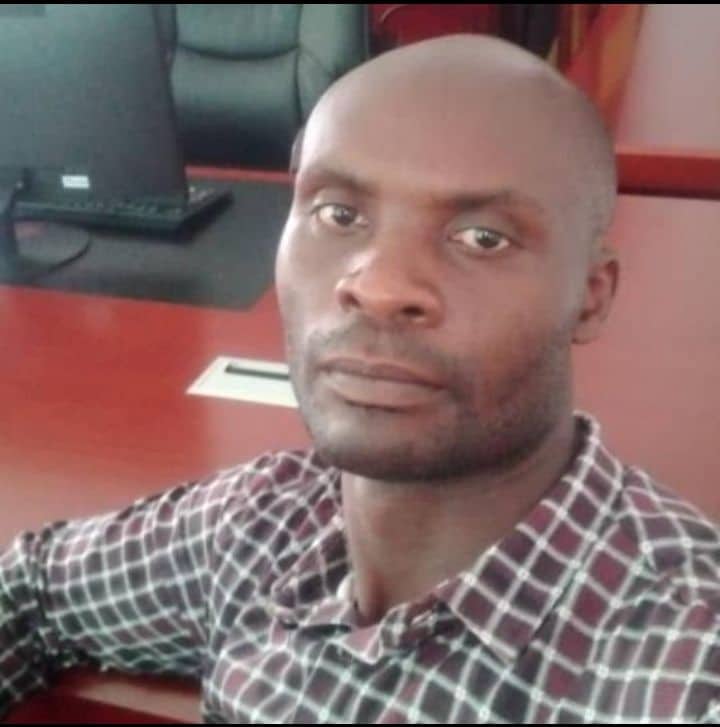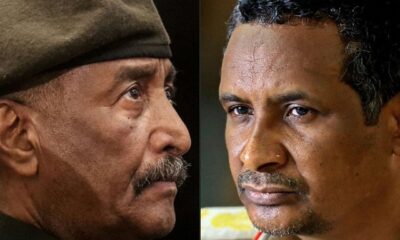The history of taxation in Uganda is multifaceted, encompassing informal systems in traditional societies and formal systems introduced during British colonial rule. Taxes were levied in various forms, including goods, labor, and services. Colonial administrations imposed taxes such as the Hut Tax Ordinance to finance governance and infrastructure, significantly impacting local communities.
Following independence, Uganda continued to depend on taxation for revenue, with legislations like the Income Tax Act of 1997 and the Value Added Tax Act of 1996 shaping tax collection. The establishment of the Uganda Revenue Authority (URA) in 1991 aimed to supervise tax administration in the country.
Taxation plays diverse essential roles in the economy, such as financing government expenditures like infrastructure, education, healthcare, security, and social welfare programs. It also serves as a mechanism for wealth redistribution by imposing higher taxes on larger incomes and providing assistance to lower-income individuals.
Tax policies can be utilized to stimulate economic growth by incentivizing investment, entrepreneurship, and innovation. Providing tax incentives to specific industries or activities can enhance economic activity and attract foreign investments.TrendingMuseveni In South Africa For One- Day State Visit
Taxation is a fundamental aspect of fiscal policy, enabling governments to regulate aggregate demand, manage inflation, and stabilize the economy through adjustments in tax rates and government spending. Tax revenue can be allocated towards social welfare programs to aid disadvantaged populations with essential services such as healthcare, education, and housing.
Despite these benefits, what are the challenges faced by tax management in Uganda today?The Uganda Revenue Authority (URA) is making efforts to improve tax compliance, yet reports of tax evasion persist, with businesses underreporting income and engaging in fraudulent activities. The informal sector, consisting of small businesses and self-employed individuals, operates outside the formal tax system, creating obstacles for tax collection and leading to revenue loss.
Tax laws in Uganda are perceived as intricate, particularly for small businesses and individual taxpayers, making compliance burdensome and resulting in inadvertent errors or non-compliance. The introduction of e-invoicing has caused friction between the government and the business community in Uganda. Corruption within the tax administration system, such as bribery, collusion, or misconduct among tax officials, may hinder the effective enforcement of tax laws.
Misuse of taxes in Uganda.
Misuse of taxes can transpire when public funds generated through taxation are mismanaged, misappropriated, or used for unintended purposes. Those responsible for overseeing tax revenue may divert funds for personal gain through corrupt practices like bribery, kickbacks, or embezzlement.
This can lead to public infrastructure funds being redirected to private accounts or utilized to support extravagant lifestyles of government officials. Inefficient use of tax revenue can result in wastage, with funds earmarked for social welfare programs like healthcare or education not reaching their intended recipients due to bureaucratic inefficiencies, lack of oversight, or poor planning.
In Uganda, taxes are at times utilized to favor political allies or supporters through patronage schemes. This may involve granting government contracts or appointments based on political loyalty rather than merit, leading to suboptimal outcomes and eroding public trust. The social and economic impacts of political patronage are significant, affecting the efficiency and integrity of public institutions.
The social and economic drawbacks of political patronage
Allegations of political patronage in Uganda encompass preferential treatment for politically connected individuals in government contracts, appointments, and resource access. This undermines meritocracy, distorts governance, and weakens institutions by prioritizing loyalty over competence. Such practices can result in inefficiency, incompetence, and mismanagement, eroding public trust in government.
Political patronage has adverse economic repercussions like fostering crony capitalism, impeding unfair competition, stifling entrepreneurship, innovation, and economic growth. It concentrates wealth in the hands of a politically connected few, perpetuating inequalities and hindering market competition. This can lead to economic consequences and impede overall development.
These practices deepen social divisions by favoring specific groups based on political affiliation, fostering resentment and alienation among marginalized groups. This exacerbates ethnic, regional, and political divides within society, leading to further social discord and exclusion.
The practice of political patronage can breed corruption, as individuals exploit connections for personal gain, resulting in kickbacks, bribery, and other corrupt practices that undermine transparency, accountability, and the rule of law.
While recognizing political patronage in Uganda as a tool for consolidating political power and rewarding loyalty, its long-term implications can be detrimental to governance, economic development, and social cohesion. Addressing this issue necessitates strengthening institutions, promoting transparency and accountability, and fostering a culture of meritocracy based on competence and integrity rather than political allegiance.
The writer is an MBA student at Busitema University.
DISCLAIMER: The views expressed in this article are solely for and belong to the writer/ author. They don’t reflect, portray or represent those of Ultimate News, it’s affiliates, owners or employees. If you have a story in your community or an opinion article, let’s publish it. Send us an email via ultimatenews19@gmail.com
News
Ugandan Citizen Abducted, Held in Secret Detention for Three Months, Sparks Outrage and Calls for Justice

A disturbing new case of unlawful detention has surfaced, highlighting the ongoing human rights crisis in Uganda. A Ugandan citizen was reportedly abducted and held in a secret facility, known as a “safe house,” for three months, only to be released without charge or explanation. This incident, reported by NTV Uganda, has sparked widespread condemnation and renewed calls for accountability regarding human rights abuses in the country.
While the details surrounding the abduction remain unclear, reports indicate that the individual was taken without due process and held incommunicado—an action that has long been condemned by human rights organizations. The victim’s release, with no charges filed and no clear justification, has angered activists and citizens, who view this as yet another case of egregious abuse of power by the state.
“This is a recurring pattern,” said one human rights activist. “Abductions, secret detentions, and unexplained releases have become all too common in Uganda. These acts violate fundamental human rights and erode public trust in the justice system.”
The use of “safe houses,” unregistered detention facilities reportedly operated by security forces, has been a focal point in numerous allegations of torture and illegal imprisonment. Despite repeated calls from both local and international organizations for their closure and accountability for those involved, little action has been taken to address these violations.
This case underscores the urgent need for reform within Uganda’s security apparatus and greater accountability for human rights abuses. Observers hope that drawing attention to these injustices will spur concrete action to bring those responsible to justice and ensure the protection of basic human rights.
As frustration mounts, calls for both domestic and international pressure to hold the government accountable for such crimes grow louder. “One day, there must be accountability for all these crimes against our people,” stated one social media user, reflecting the sentiments of many Ugandans.
News
NUP Gathering Disrupted: Kyagulanyi Alleges Security Force Harassment and Arrests

National Unity Platform (NUP) President Robert Kyagulanyi has accused Ugandan security forces of using excessive force to disrupt a planned NUP gathering. The allegations were detailed in a statement shared on Twitter, following an event held to honor children of NUP supporters who were killed, disappeared, or detained for their political beliefs.
According to Kyagulanyi, security personnel, under the command of an officer identified as Asiimwe, carried out a preemptive operation early in the morning upon learning of the NUP’s plans. The forces allegedly stormed the premises, arrested workers, and deployed tear gas to disperse those present.
“The criminals under the command of one Asiimwe deployed early morning, arrested our workers, and threw tear gas into our premises. They’ve cordoned off the premises and blocked all people from accessing the place,” Kyagulanyi wrote.
Among those reportedly arrested were Saava Peter, Mudenya Samson, and Turyasingura Samson. Kyagulanyi claimed the detained workers were subjected to beatings and interrogated about their political affiliations, with security operatives labeling them as terrorists.
“These JATT operatives asked the workers who they support politically, branding them terrorists and criminals—their only crime being that they work with us. You can imagine the indignity!” Kyagulanyi lamented.
This incident adds to the growing tension in Uganda’s political climate, where opposition parties frequently accuse the government of stifling dissent. Despite the challenges, Kyagulanyi ended his statement with a message of defiance and optimism, proclaiming, “UGANDA WILL BE FREE.”
NUP Gathering Disrupted: Kyagulanyi Alleges Security Force Harassment and Arrests
News
Sudan Demands Apology from Uganda Over Army Chief Muhoozi Kainerugaba’s Threat to Invade Khartoum

Sudan has demanded an official apology from Uganda over “offensive and dangerous” comments made by the chief of Uganda army staff, who threated to invade Khartoum, the Sudan Tribune has reported.
General Muhoozi Kainerugaba, son of Ugandan President Yoweri Museveni and CDF of the Ugandan army, posted two comments on the X platform on Tuesday in which he threatened “to capture Khartoum” with the support of the US President elect Donald Trump after he takes office. The posts were deleted later.
“The government of Sudan demands and official apology from the Ugandan government for the offensive and dangerous comments of the army commander,” Sudan’s foreign ministry said in a statement that the Sudan Tribune said it has seen.
Sudan Demands Apology from Uganda Over Army Chief Muhoozi Kainerugaba’s Threat to Invade Khartoum










